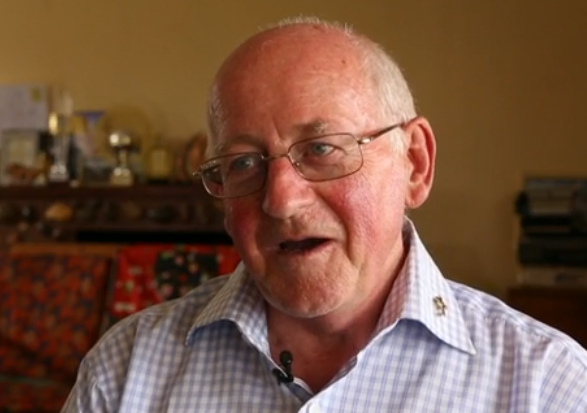The world record-breaking athlete and his extraordinary Catholic coach
The BBC is undoubtedly hyping the Commonwealth Games, which gets underway in Glasgow today after last night’s lacklustre opening ceremony, beyond its limited worth. But even with that in mind, there will still be a few of its plot-lines deserving of our attention.
Principally among those will be the attempt of David Rudisha, a remarkable Kenyan 800 metre runner, to add Commonwealth gold to the gold he won at London 2012.
The 25-year-old became Olympic champion after winning a remarkable race in which he led all the way and smashed his own world record. It was a feat of such awesome power and speed that he is now commonly referred to as the greatest 800 metre runner of all time.
The story behind Rudisha’s success is just as remarkable as the performances he puts in on the track, as demonstrated in a brilliant BBC Four documentary that aired on Tuesday night. As 100 Seconds to Beat the World: The David Rudisha Story showed, Catholicism has played a vital role in turning a quiet, shy boy from a Maasai village into an international sports star.
When he was a teenager Rudisha joined a renowned training programme for young athletes run by Brother Colm O’Connell at St Patrick’s Secondary School, a school set up Irish missionaries, the Patrician Brothers, in Iten, Kenya, in 1961.
Rather than move on to a different coach after the success in the World Junior Championships, Rudisha stuck with Brother Colm, and the Irishman emerges from the documentary as much a star as his illustrious charge. He’s a driven, determined coach whose ethos in life and sport is underpinned by his faith and mission. He’s also often very funny, if a little hard to follow at times thanks to his Irish/Kenyan accent.
100 Seconds is a heartwarming, triumphant documentary and a welcome dispatch from a world of international sport bloated by cash and venality.
It’s available on iPlayer for the next five days, and is well worth a watch.
COMMENT POLICY
The Catholic Herald comment guidelines
At The Catholic Herald we want our articles to provoke spirited and lively debate. We also want to ensure the discussions hosted on our website are carried out in civil terms.
All commenters are therefore politely asked to ensure that their posts respond directly to points raised in the particular article or by fellow contributors, and that all responses are respectful.
We implement a strict moderation policy and reserve the right to delete comments that we believe contravene our guidelines. Here are a few key things to bear in mind when commenting…
•Do not make personal attacks on writers or fellow commenters – respond only to their arguments.
•Comments that are deemed offensive, aggressive or off topic will be deleted.
•Unsubstantiated claims and accusations about individuals or organisations will be deleted.
•Keep comments concise. Comments of great length may be deleted.
•We try to vet every comment, however if you would like to alert us to a particular posting please use the ‘Report’ button.
Thank you for your co-operation,
The Catholic Herald editorial team

